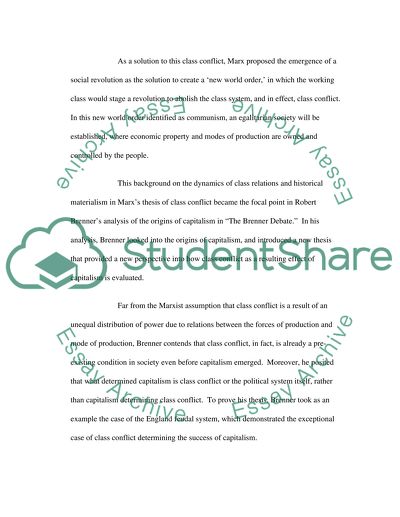Cite this document
(Evaluating Robert Brenners Thesis on the Origins of Capitalism Report, n.d.)
Evaluating Robert Brenners Thesis on the Origins of Capitalism Report. https://studentshare.org/social-science/1525202-the-brenner-debate-evaluating-robert-brenners-thesis-on-the-origins-of-capitalism-marxistnon-marxist
Evaluating Robert Brenners Thesis on the Origins of Capitalism Report. https://studentshare.org/social-science/1525202-the-brenner-debate-evaluating-robert-brenners-thesis-on-the-origins-of-capitalism-marxistnon-marxist
(Evaluating Robert Brenners Thesis on the Origins of Capitalism Report)
Evaluating Robert Brenners Thesis on the Origins of Capitalism Report. https://studentshare.org/social-science/1525202-the-brenner-debate-evaluating-robert-brenners-thesis-on-the-origins-of-capitalism-marxistnon-marxist.
Evaluating Robert Brenners Thesis on the Origins of Capitalism Report. https://studentshare.org/social-science/1525202-the-brenner-debate-evaluating-robert-brenners-thesis-on-the-origins-of-capitalism-marxistnon-marxist.
“Evaluating Robert Brenners Thesis on the Origins of Capitalism Report”. https://studentshare.org/social-science/1525202-the-brenner-debate-evaluating-robert-brenners-thesis-on-the-origins-of-capitalism-marxistnon-marxist.


